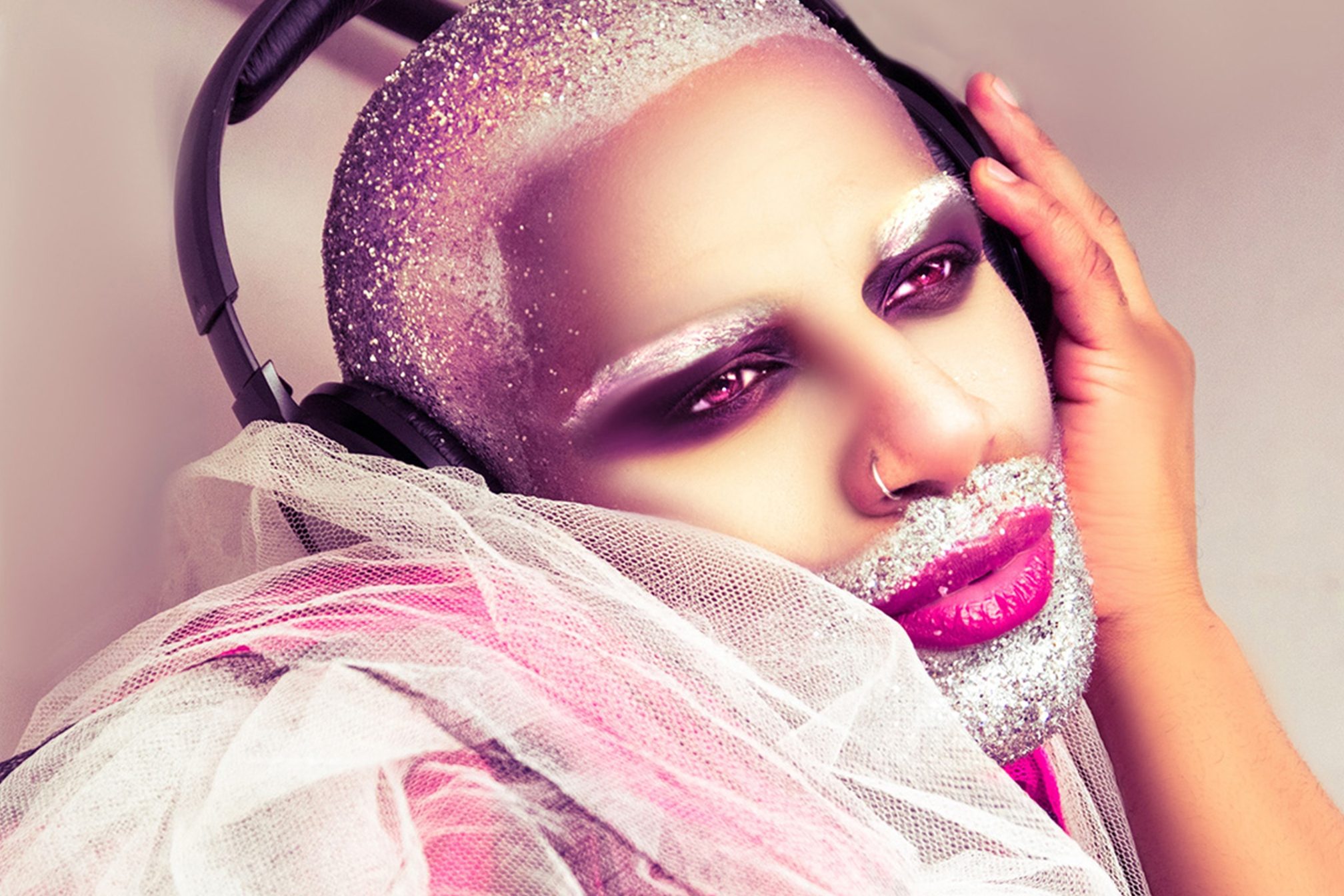 Features
Features
Drag, glitter and prison: How Raven Mandella became disco's best-loved dancer
Jaguar meets Raven Mandella, the "unapologetically Black and queer" dancer, drag performer and DJ who brings dancefloors to life
“That transference of energy between people; a laugh with your friends, being care-free, drinking, loud music…” muses Raven Mandella, “That’s what life is about! I’m missing life”. Even over Zoom, it’s easy to get swept up in Raven’s animated glow as he lassos back the fading memories of clubbing. “Something’s connected to my soul, my spirit - to move, to feel the music, and what the bass is trying to tell you. Music is a language communicating with you, it’s not just pretty beats.”
With flickering eyes, and gesturing hands, we dart from one topic to the next, like a free-flowing routine. The last time I saw Raven he was dressed in a pink glitter leotard and adorned with a sailor’s hat, flexing his trademark parasol and body pumping at Fat Tony’s lockdown Mixmag Lab LDN. Today, Raven is at home, dressed down in a yellow string vest, silk shirt and bare-faced; not a sequin in sight.
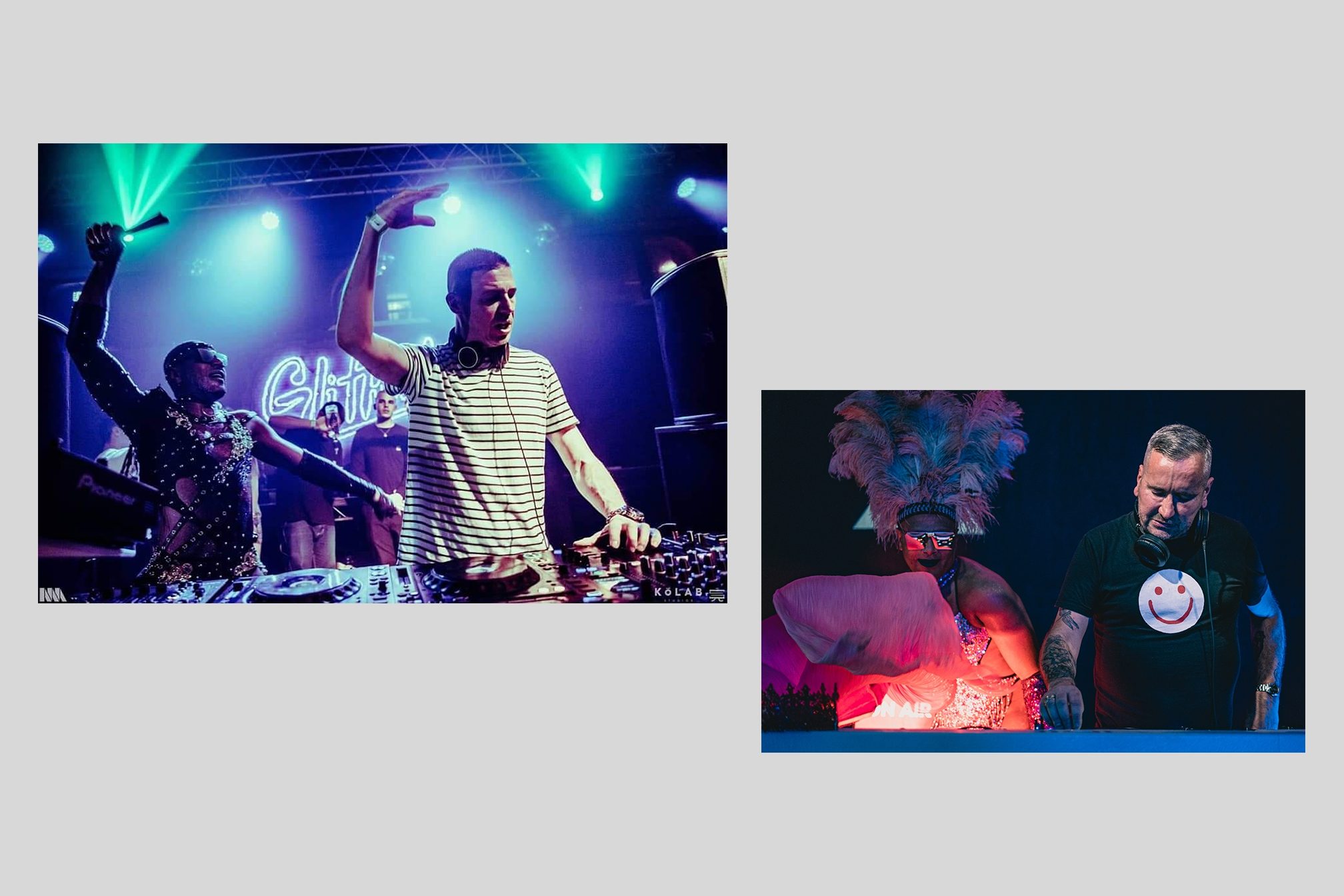
As a professional dancer and drag performer, Raven has toured the world, igniting stages for everyone from Honey Dijon to Groove Armada, Kelly Rowland to Nile Rogers. He made a name for himself in London with his flamboyant choreographed shows at Heaven, and has worked with Sink The Pink, Ministry of Sound and Defected’s Glitterbox. His vivacious ambition led him from working class origins in Leeds, to Japan, Russia, Jerusalem, Egypt, Europe and beyond. His passion for life and self-assurance shines through, but it was a life-long journey to get here.
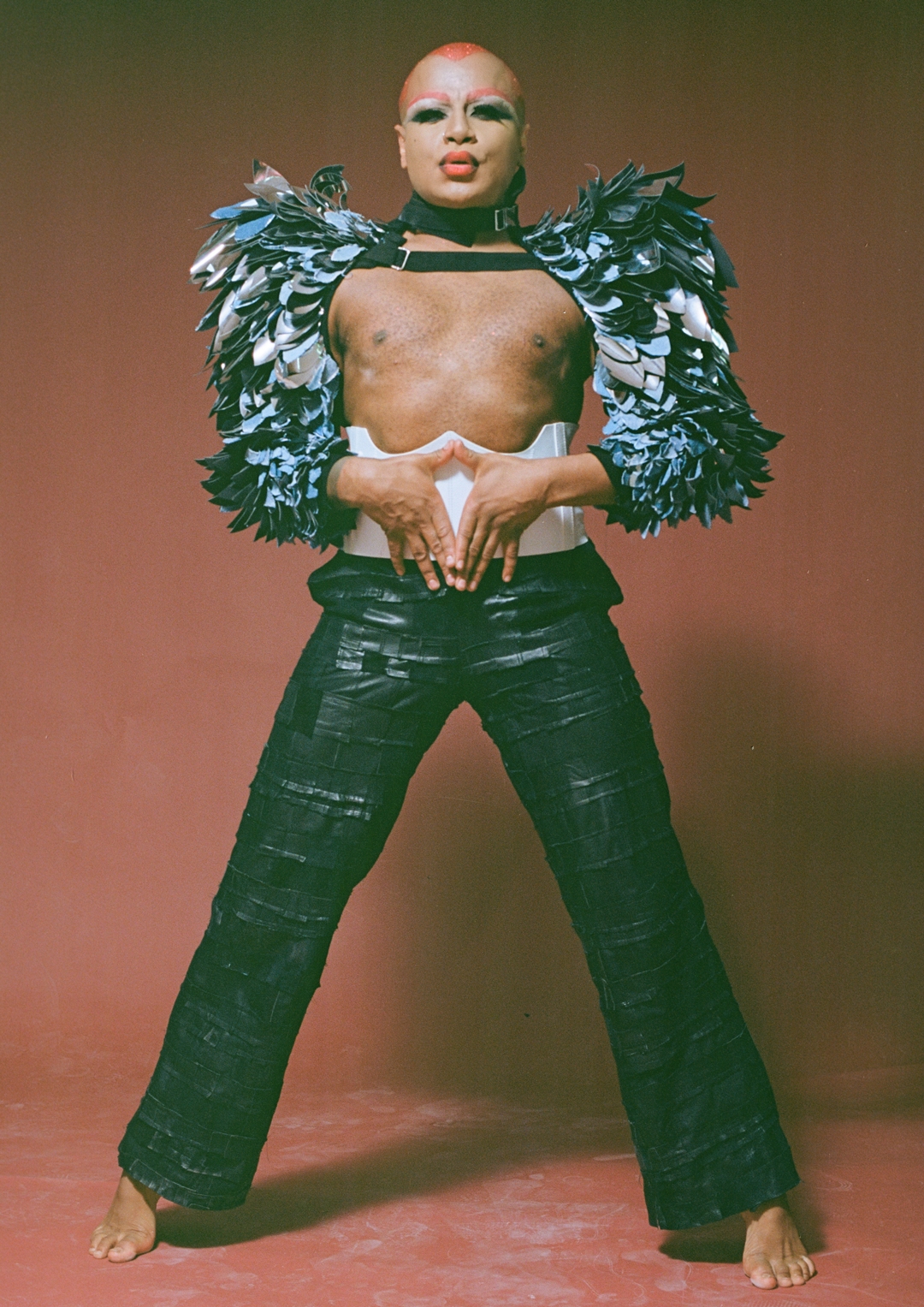
Shoulder piece worn by Raven designed by Dylan Joel
Like most of us, 2020 put life on pause for Raven, who just before lockdown was gearing up to unleash a theatrical DJ show, merging all of his skills into one package: “You might have wigs one day, you might have tits, you might have Beyoncé with fans, and the next day you have the disco queen with glitter beard with tassels and rhinestones…”. For now, he’s been hosting online, but he’s determined to take it further when the world opens up again. “Having worked with some of the biggest DJs in in the world I've picked up a thing or two”, he says. “There’s no reason why a fabulous, flamboyant queer artist shouldn't be on more of the line-ups at festivals and clubs. I have every intention coming through and smashing it.” Raven managed a few shows after the first lockdown, at Fat Tony’s Social Discoing, and he also found a new career, as a life model - “not full-frontal, because they’re not paying me that much!”. He assured me that it was just “a bit of a cheeky leg or cheeky bum”. This was just one of the ways Raven has been able to stay connected with art and keep financially afloat.
Raven outwardly beams positivity, but isn’t afraid to touch upon scars of the past. Born in Chapeltown, Leeds, Raven was the oldest of five siblings, and fondly remembers a “crazy, colourful, young and fun” family life. From the age of four he would dress up as Michael Jackson and dance the moonwalk. He was raised by his mother and grandmother, and horror films, laughter and music pulsed through the household, with words ‘shady’ and ‘star’ being part of the family vernacular. “My mum is everything to me,” says Raven - she inspired his feminine drag persona. “Mum would spend hours getting ready upstairs. She’d come down in this glamazon hair, big blonde wig, with pvc boots, make up… a complete transformation. Her nickname was Wiggy”. Despite this, he had no hopes of making it as a dancer. “I didn’t know anyone like that, or have anyone to aspire to. The best you’d see anyone do is work in JD.” It wasn’t until watching 2004 film You Got Served with Marques Houston that Raven wanted to become a professional dancer: “I remember seeing it and being like ‘wow, this is the next level of where I need to be!’”
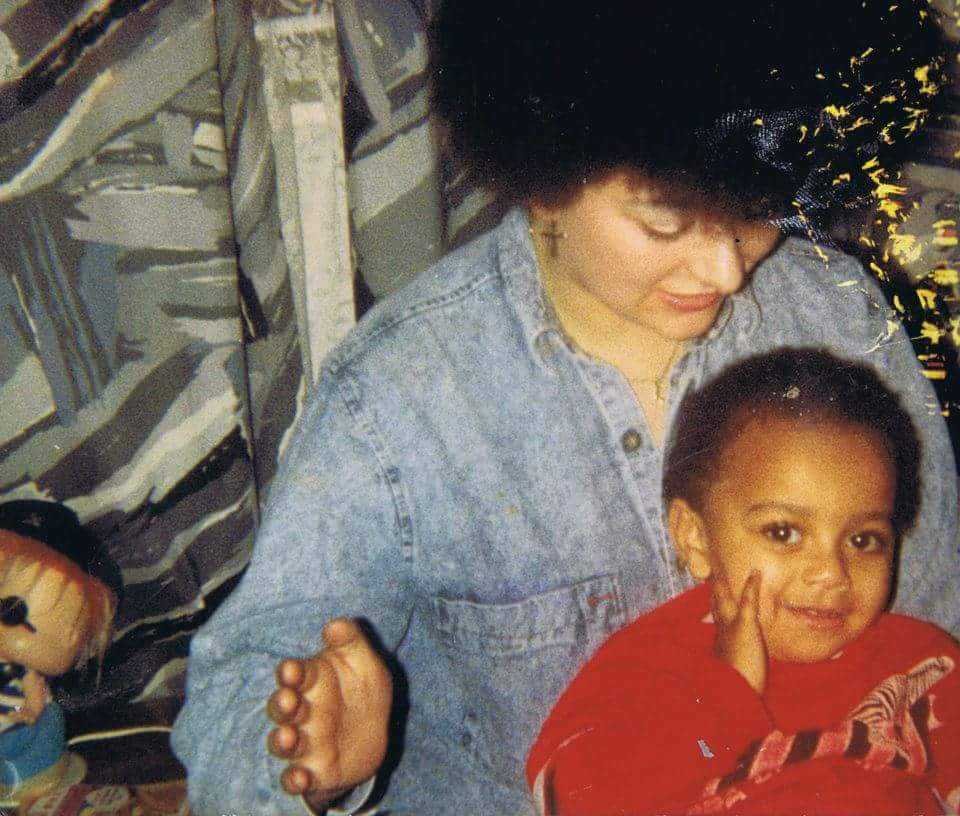
Raven was first enticed by the strange, dark world of nightlife when he was 14. Legendary Leeds stalwart SubDub at the West Indian Centre was a regular haunt, where Raven would stare in wonder at the walls of speakers and bodies dancing. He cut his teeth mixing at house parties, playing bassline house and speed garage, and was a regular raver at northern club nights Casalocos, Back To Basics and Niche in Sheffield. “I loved going out dancing - I had this ability to command a room. Casaolcos was a very rough, very straight club. There were white people in one corner, Black people in the other, Asian people in the next and traveller Gypsies in the other. The only place they would meet was on the dancefloor. The only person who could go between them was me, dancing and having a laugh. Because I was so young, they looked after me, they loved my character. Dancing enabled me to command respect, that was my way of being somebody and something.”
Raven’s first experience at a gay club was Leeds party SpeedQueen at Warehouse on Saturdays. He was supposed to be working as a glass collector, but he’d be up on the floor instead. A young Raven was immersed in colour, sound and confetti and classics like Soulsearcher ‘Can't Get Enough’ and Barbara Tucker’s ‘Precious Love’ became anthems of self-discovery and letting go. His first experience of drag came from venues Glass House, Uber Club and The Bird Cage.
“The first time I saw a drag queen I was like ‘What The Fuck!’ It scared me!” He laughs. “Because of my own reaction, I can understand why some people might be afraid when they first see a drag queen. You just have to relate to them and then be like ‘oh actually, we’re not that different’. What I don’t accept is when people see something and they want to attack it and bring it down. There’s no excuse for that. That’s just you being a cunt.”
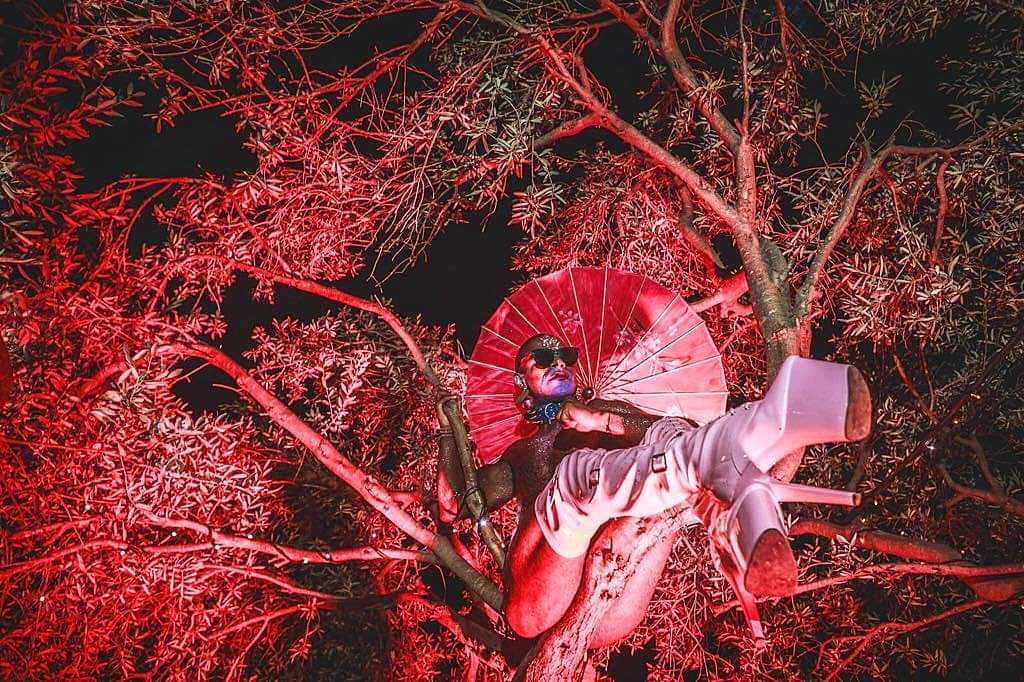
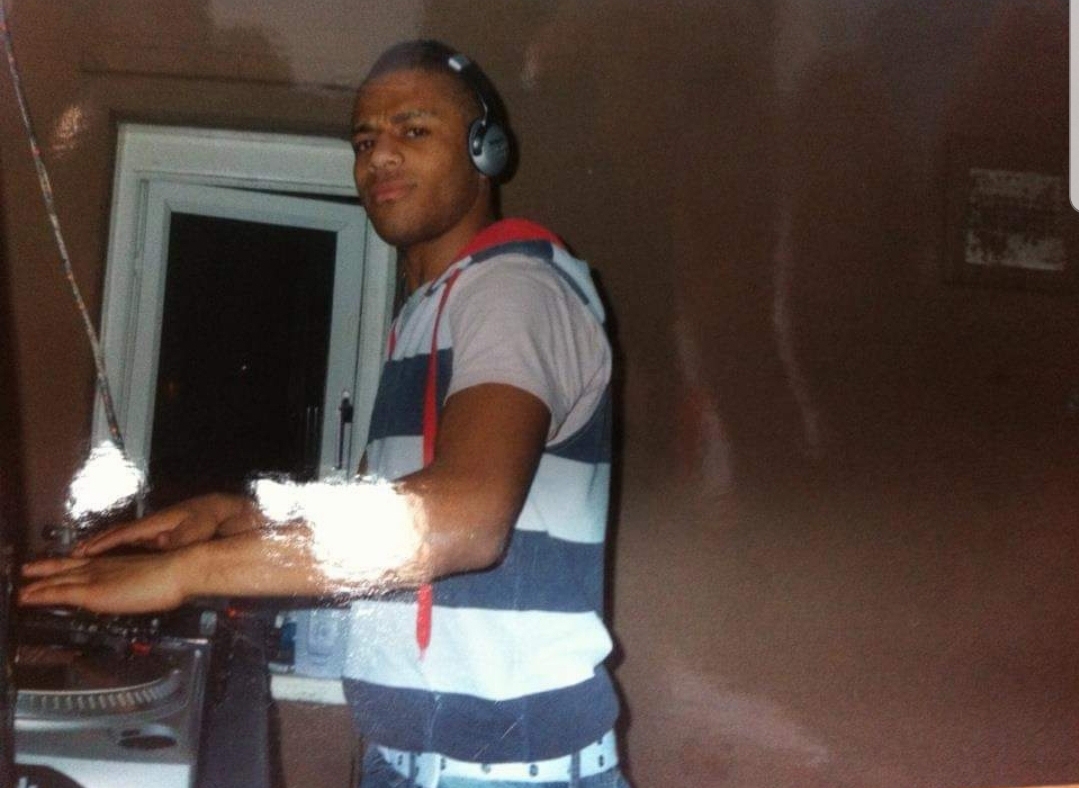
Raven’s upbringing in heteronormative Chapeltown meant a lack of queer Black role models, so he had to adopt masculine qualities to survive. “I come from the streets, and all my friends were straight at the time, and even though I was the gay one, I was the toughest one, the hardest one. People think if you’re gay, you’re inherently weak or a victim. I am a positive person, but I’m also strong in what I believe in, who I am and what I stand for. I’ve learnt to be that way, because people have brought me down growing up, because of my colour, because I’m different. Growing up, holding onto your beliefs and being Black, gay and knowing your worth can be a very dangerous thing. People don’t want to deal with it. People want you to be subservient and give and not ask the question. That’s not who I am as a person; I’m unapologetically Black and queer.”
Pursuing his passion by going to theatre school led Raven to tour the world as a professional performer, and after auditioning as dance collective Hot Heels in 2015, he joined Defected’s Glitterbox crew. He worked with people who understood him for the first time, injecting his love of connecting with people on the dancefloor into the White Isle. Raven was the blueprint for what Glitterbox became, working the streets of Ibiza in heels, bringing that camp, fierce energy that was missing, and soon became the official brand ambassador, dancing for Barbara Tucker, Julie McKnight, Cece Penniston and all the old school queens who he’d been listening to growing up. “All the things Glitterbox stood for was what I stood for, doing the job I was put on this earth to do. When I met Kathy Sledge after her dress rehearsal, I was like ‘it’s so gorgeous to meet you’ and she was like ‘OMG this is the dancer!’ She knew who I was! She was lovely and beautiful. I loved that.”
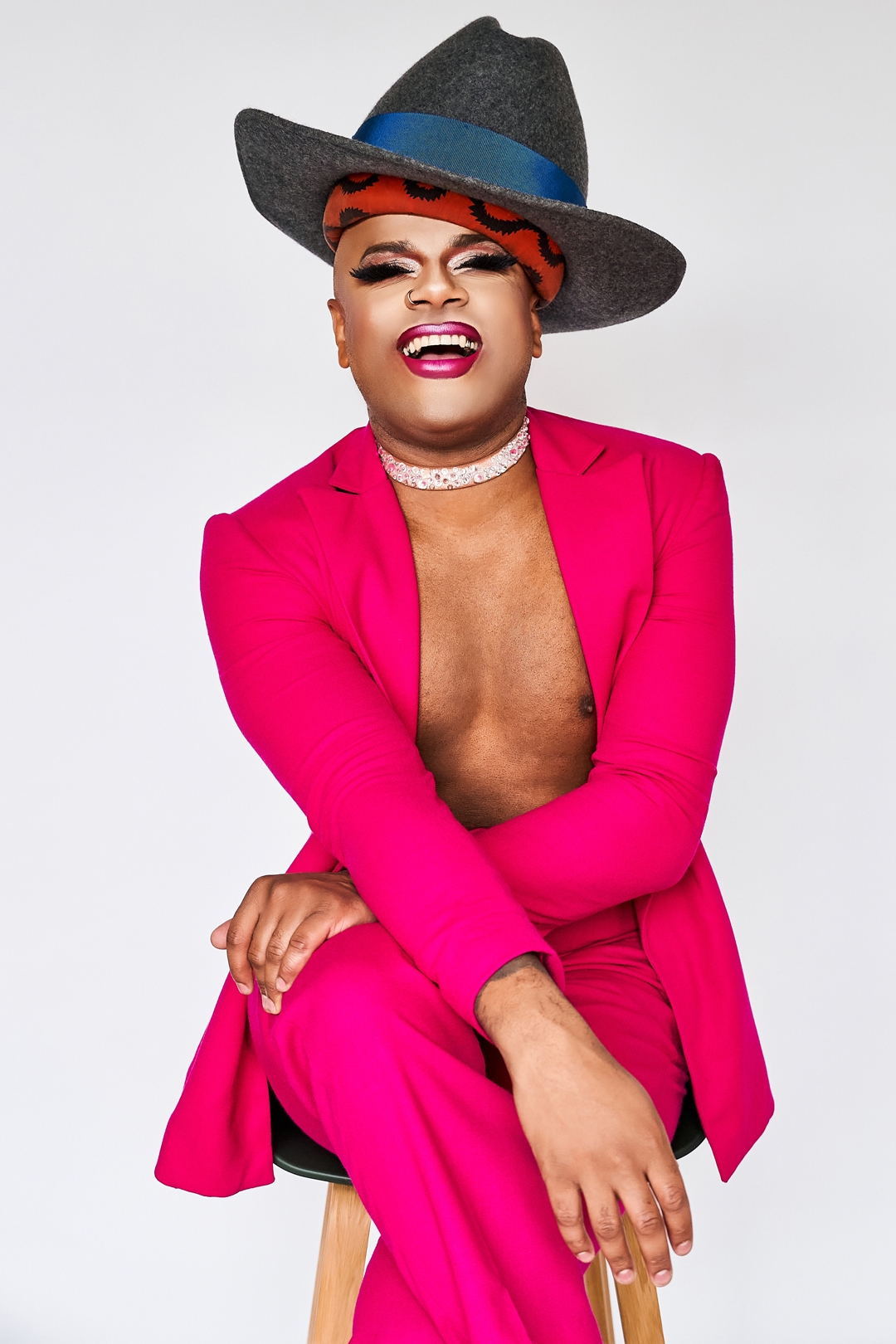
But Raven left Glitterbox last summer and is pursuing new projects. He says: “Working with them were some of the best days of my career so far! They were my family and I'm so happy for the good times I had and what I achieved with them. My contributions to the brand speak for itself and I hope to be remembered for that, but all good things come to an end. I personally felt the environment that I worked in for years started to change and became toxic and suddenly this thing that used to make me so happy started to do the opposite and drain me of my energy. Since issues weren't dealt with properly and were getting worse, I could see no room for development for me as an artist [so] I made the decision to remove myself from the situation for my spiritual and mental health and to continue my journey towards my goals and ambitions on my own.”
Raven’s blazing authenticity is his gift, but on New Year’s Eve in 2015, it nearly destroyed him. He was imprisoned for retaliating to homophobic and racist bullies at a party. Raven was arrested at a gig a few weeks later, led away into the police car while, in true style, decked out in an opulent pirate shirt and dazzling Vivienne Westwood hat. He took responsibility for his actions, and spent 14 months in prison where fights, stabbings and drug drones became his new reality. “It was like going back in time, to that masculine armour from growing up. All this outward persona and sharing and laughing, I had to rein that all back in to deal with day to day life.”
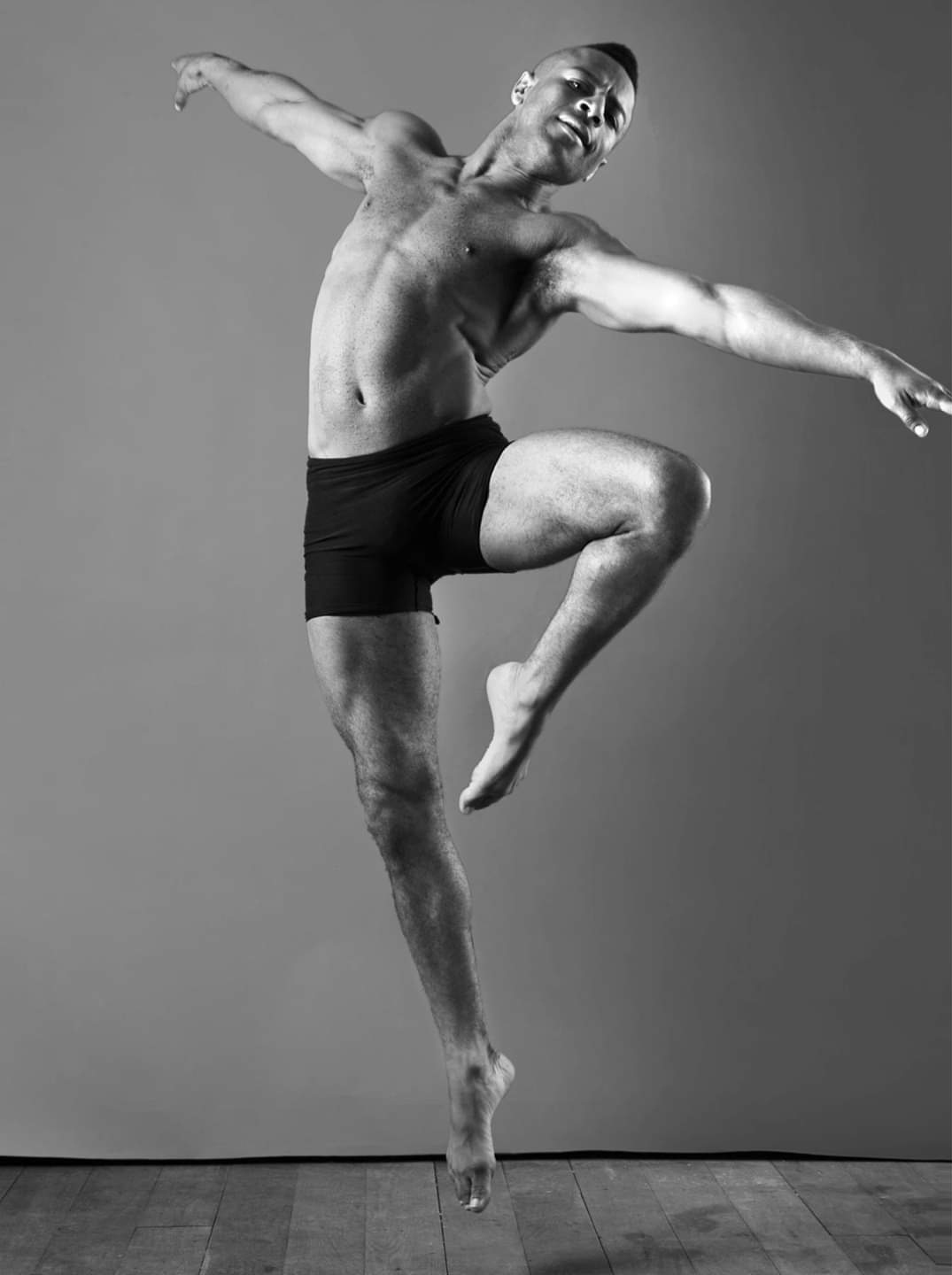
His sentence for fighting worked in his favour and generally, inmates left him alone, but if confronted, his true self couldn’t help but shine through. Once another prisoner asked if he was gay, Raven replied yes, before adding, “Guess what, I’m a drag queen as well!” The prisoner stammered back, incredulous, and from then on, nobody bothered him. Raven eventually befriended the women prisoner officers in the kitchen, where he could be himself. “I’d be in there singing Sylvester’s ‘Mighty Real’, pushing the servery trolly round!” On his birthday, the day before he was released, the inmates baked him a cake and sang to him. “They were all upset I was going. It’s like my heart changed the environment. That’s what I give when I perform, dance, play music. I’m able to connect with people, because I’ve been through a lot in my life and I can understand people. Having empathy is what makes you a great artist. I remember all the new prisoners were like ‘Who the fuck’s this guy? Why are they making a cake?!’”
During his time, Raven was supported by the public, and friends Amy Zing and Mzz Kimberley, with Free Raven Mandella online hashtags and hundreds of letters, which are some of his most prized possessions. “I couldn’t have got through it without them and knowing that everything I’d worked towards my whole life hadn’t disappeared and that when I got out all my jobs were still there. Prison taught me that I’m stronger than I know, and I can keep going, and also that the only thing with the power to destroy me is myself.”
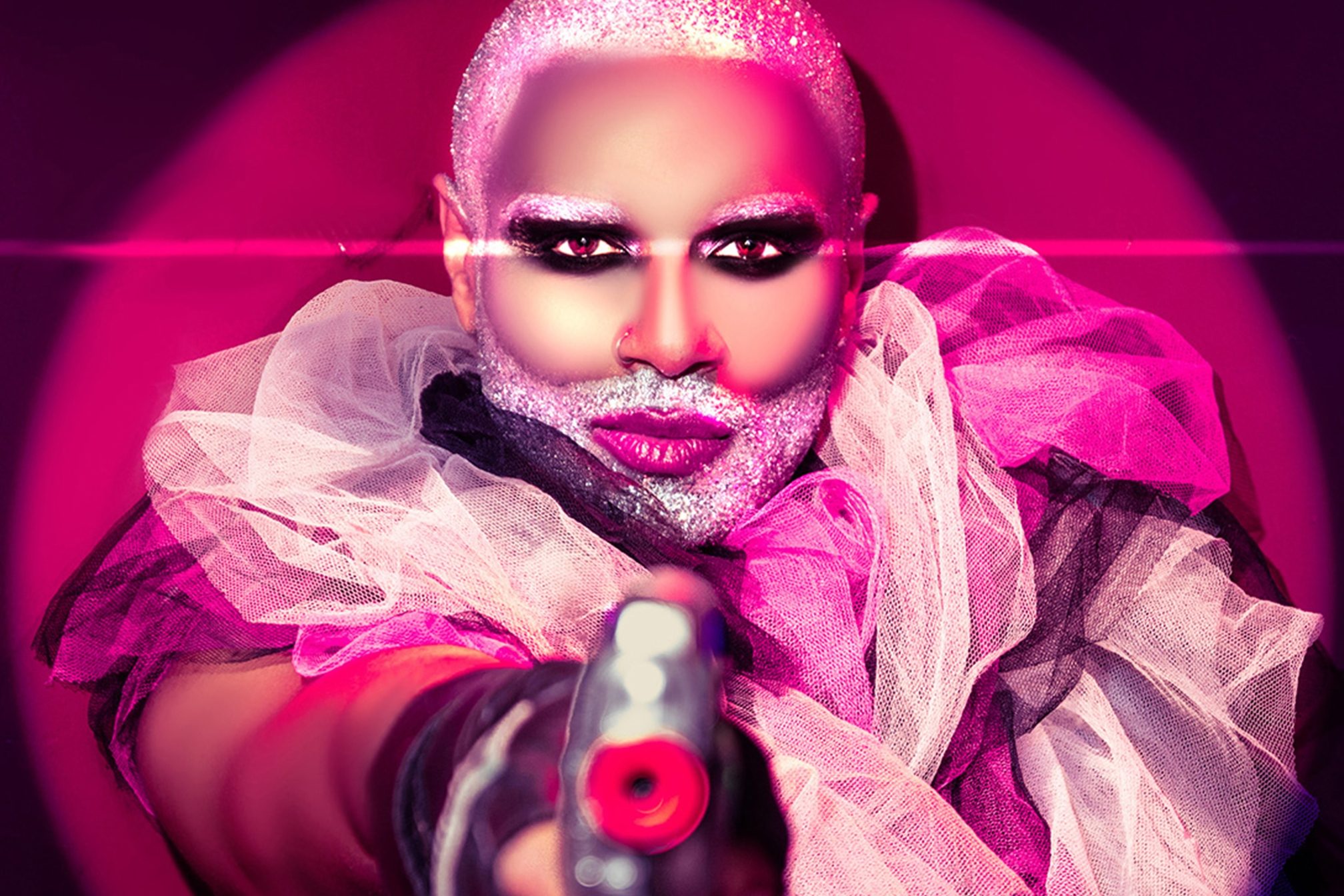
After leaving prison, Raven started rebuilding his life, but the following year his beloved Grandmother died, which knocked his spirit. This summer he found particularly taxing, after the death of George Floyd and Black Lives Matter movements. “It was horrendous. I’m sick of trying to be the best version of myself and then things get twisted by people. Every time you’ve been called the N-word, or made to feel wrong for being passionate, and being labelled as aggressive - everything is a kick in the face. It was a difficult time, but I was out protesting, doing interviews on TV, speaking at the marches. I was the first person out there in the protests in my shiny leotard, with my arse out, in high heels. No one was doing it! No one was brave enough. No one in queer publications said anything. I thought, if I’m going to be an ambassador for something, it's time to be an ambassador for myself and people like myself. I’ve always been like that. But there’s a fight you can’t fight alone. It felt like the first time that everyone was together. It connected the fire within me, to my heart, straight to my voice, to speak and say the things that needed to be said.”
“People in power need to listen and make change. People need to accept that the way the world is set up doesn’t work in our favour. It’s not a myth, we’re not making it up! It’s true. We don’t want to keep dragging it out, we’ve got better things to do! While we keep saying it, and they’re not listening, it’s never gonna change. The people need to show empathy, love and compassion and realise that we’re all the same thing. All the things that make us different is what connects us together. Whether you’re gay, straight, Black, white, trans, man or woman… we’re all the same. We all want to feel safe, equal, loved and supported. All the fundamental things that make us human. So why are we fighting each other? We need people of colour and LGBTQ+ people in positions of power, to come from a place of understanding. We need to make sure this includes women and Black women, to make sure everyone is celebrated as they should be. It’s simple!”
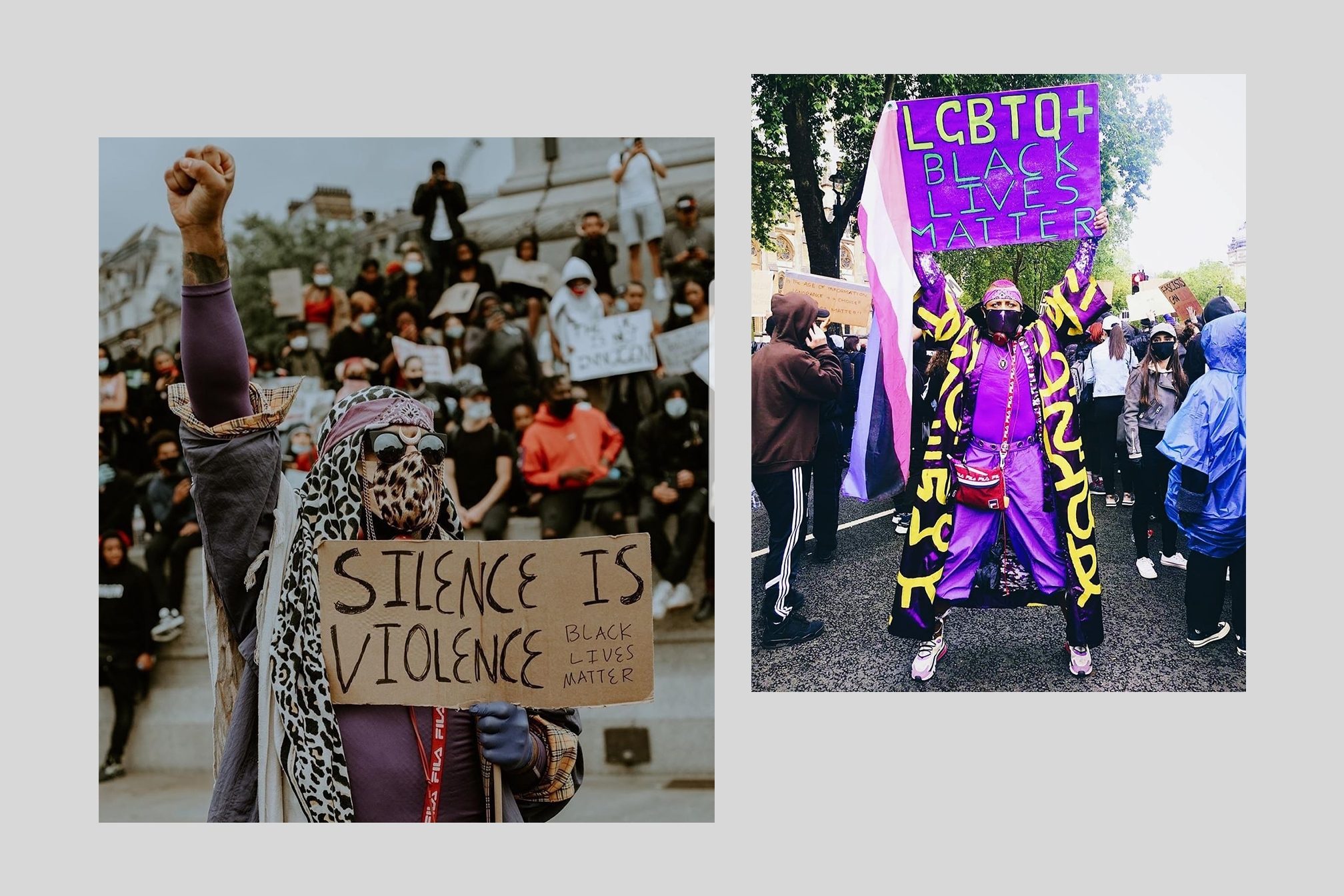
Raven’s story is nothing but simple, but his hopes for the future are. “I would like to be a voice within the community that is heard and respected. I like to build people up, I like to see the best in people and I like to be put to use.” Raven’s light uplifts and unites the world through art, and as he enters a new chapter in his life, he moves with grace and wonder. “I want to speak about my story, write a book, we could even do a house music musical!” he chuckles, before breaking into Armand Van Helden’s ‘You Don’t Even Know Me’, then reassures us, “but that story’s still being written…”
Follow Raven Mandella on Instagram and SoundCloud
Jaguar is the presenter of BBC Radio 1's Introducing Dance show and a freelance writer, follow her on Twitter
Read this next: Get the best of Mixmag direct to your Facebook DMs



